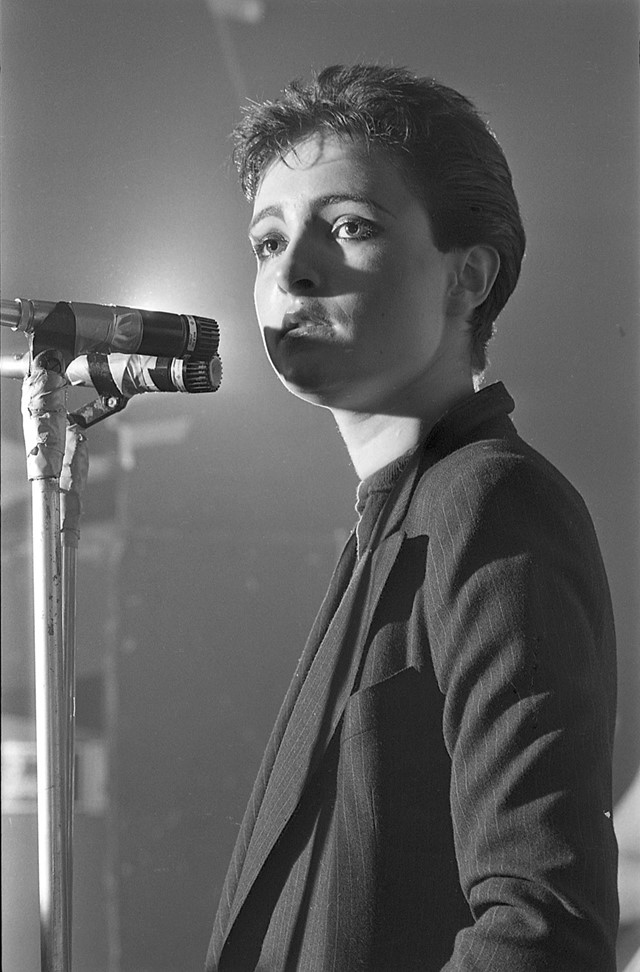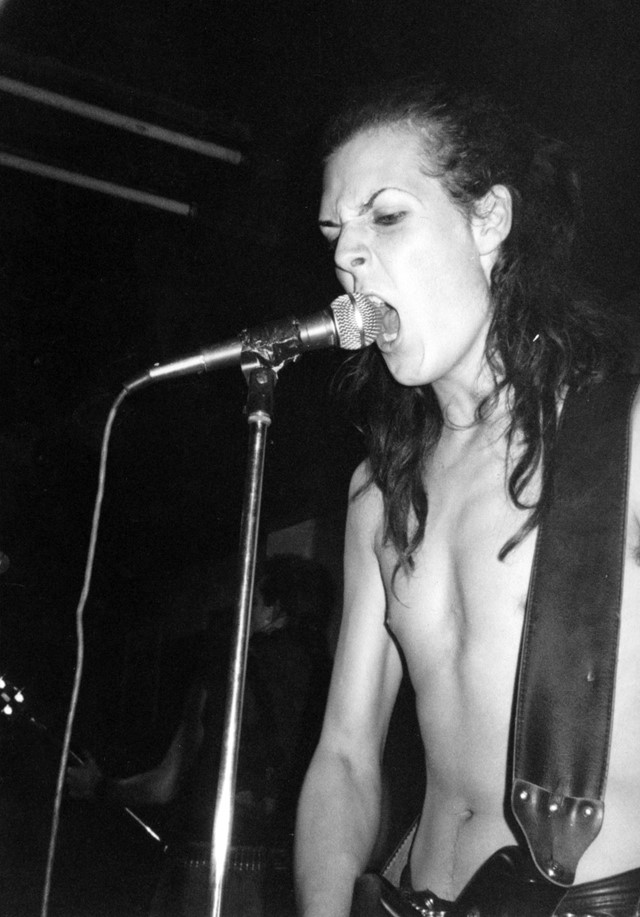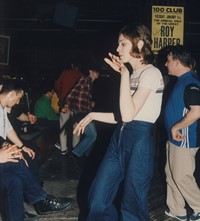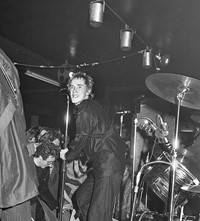Fred Perry and Ditto debut a new book documenting seven decades of the 100 Club’s stories, along with photography from the likes of Elaine Constantine
Tucked away between the generic high street stores and souvenir-touting tourist shops of Oxford Street lies an incongruous doorway, which, for those unfamiliar, leads down to one of London’s most beloved late-night music venues: the 100 Club. Taking its name from the number it’s situated at, the club first opened its doors in 1942, and became known for the raucous swing and jazz parties it hosted downstairs in its dark, low-ceilinged basement.
Over the years, as jazz slowly made way for rock and roll, punk, Northern Soul, and eventually even techno, the club played host to just about any and every emerging band you can think of: The Sex Pistols, Siouxsie Sioux and the Banshees, Black Flag, and a then fresh-to-the-scene Manchester group by the name of Oasis. And now, to celebrate the club’s 75th birthday, Fred Perry has teamed up with Ditto to release a new book documenting seven decades of the 100 Club’s stories: as told by its owner, staff past and present, and those that performed there or took to its dancefloor.
“The book comprises 100 stories about the 100 Club,” says Ben Freeman, founder of Ditto. “These stories aren’t chronological or ordered in any specific way: we decided it was more in the spirit of the club that it was more haphazard, and reflected the nature of programming at a live venue. One night might be a Charlatans tribute act, the next a jazz revival band, and the next a heavy metal show.”
Inside its padded, faux lizard skin cover (“I wanted it to feel like a dusty old jazz sofa, whatever that means,” explains Freeman) are a collection of snappy oral histories, framed with collages made up of the personal ephemera collected by the club’s owners – Jeff and Roger Horton – over the years. Turning its pages, it feels almost like a recently-uncovered scrapbook. “It was painstakingly crafted to reflect the broad energy and disparate nature of a venue serving so many different branches of culture,” says Freeman. “There are little dancers from an old jazz newsletter, and the collages contain all these hilarious letters and fascinating newspaper clippings and anonymous photos, cartoons, illustrations, and reviews.”

Among the flyers advertising club nights and receipts booking artists including Iggy Pop and The Clash are also a series of photographs, many of which are only just seeing the light of day with the book’s release: on one page Henry Rollins screams into a microphone in 1981, on another, Johnny Rotten appears to be on the cusp of trashing the stage. Elsewhere, images of secret gigs by Metallica and The Rolling Stones are immortalised in print.
“There are some beautiful old photos of the jazz era and the Northern Soul dancers – they’re not scenes that I’m familiar with, but they all capture the same feeling; tribes, cultures, escapism, fashion and romance. Elaine Constantine’s photographs are some of my favourites in the book, along with some very grainy footage of Current 93 and members of Amebix looking very young indeed.”

Though the 100 Club has always been a destination for music lovers, and hits capacity four nights of the week, its future looks worryingly uncertain. “By and large, I don’t think there’s any music venue that has lasted longer than the 100 Club,” says co-owner Roger Horton. “And we’re still here, although we’re not sure for how much longer. The rent and rates are going up and you’re working for the taxman and the landlords. I hope there’ll be a fuss about it because this place is worth saving.”
It’s a sentiment Freeman echoes: “The 100 Club is a great British institution,” he says. “So many significant cultures have been nurtured there, from punk, Oi!, and skinhead, to Northern Soul and jazz, and the Horton family have persisted against all the odds to keep the venue going across the generations. We could have made a whole series of these books – this is just a snapshot of its history.”
100 Club Stories, published by Ditto, is out tomorrow. Pre-order a copy here















